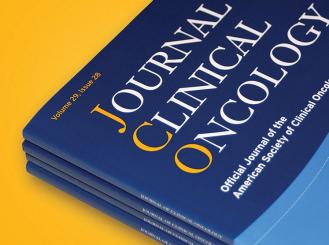Feb 09, 2015
By Shira Klapper, Senior Writer/Editor
For patients with ovarian cancer, it would seem clear that complex surgery aimed at reducing cancerous cells to less than 1 centimeter or to zero would be associated with greater survival. After all, several studies have shown this to be the case. However, it is still unclear whether this kind of surgery—referred to as “optimal debulking”—does in fact deliver the same benefit to all patients.
For example, several studies have shown that even when patients are left with no residual disease (R0), those who have extensive disease before surgery have lower survival, compared to patients with low to moderate disease. And since approximately 1% to 2% of women do not survive the aggressive surgery needed to achieve residual disease of one centimeter or less, it’s important to be able to predict who may or may not benefit from this approach.
A new study in the Journal of Clinical Oncology (JCO) sheds more light on the factors that may predict who benefits from complex surgery. The study, “Does Aggressive Surgery Improve Outcomes? The Interaction Between Preoperative Disease Burden and Complex Surgery in Patients With Advanced Stage Ovarian Cancer: An Analysis of GOG 182” was published online, ahead of print, February 9.
Initial disease distribution: the most important predictor of surgical outcomes
The study, based on data from the Gynecologic Oncology Group study #182, found that among 2,655 patients with ovarian cancer who had achieved optimal debulking, patients with higher disease distribution and higher post-surgery residual disease had worse outcomes, independent of whether they received complex or non-complex surgery.
Importantly, the study also found that among patients who achieved R0, those who had a high disease distribution before surgery had a lower overall survival (OS) and lower progression free survival (PFS) compared to patients who had lower disease distribution before surgery (disease distribution refers to the extent to which the disease has spread to the following areas: pelvis, retroperitoneum, abdomen, diaphragm, spleen, liver, or pancreas). In other words, even when R0 was achieved through complex surgery, the extent of the initial disease distribution was the most significant predictor of outcome; complex surgery did not appear to impact survival when other factors, such as disease distribution, were taken into account.
Explaining the findings, study coauthor George Larry Maxwell, MD, said, “The question this study asked was: Can you end up transcending the poor prognosis associated with widespread disease distribution by using radical surgery to ultimately leave that person with no disease after you've finished? What this study suggests is that in the end, it really may be the biology of the tumor that’s going to drive the disease outcome, and we may not be able to always necessarily overcome that.”
While the study found that disease distribution was the most significant predictor of outcome, residual disease did make a difference: Patients who achieved R0 had a higher PFS compared to patients with residual disease. And among patients with high disease distribution, those who achieved R0 after surgery had a significantly higher PFS (four months longer) compared to those who had residual disease after surgery.
Rethinking neoadjuvant therapy
According to this JCO study, the enduring effect of initial disease burden suggests there might be a benefit to neoadjuvant therapy, which might reduce the extent of disease before surgery.
Dr. Maxwell provided further explanation: “Our research group’s perspective is that if you can achieve R0 in a patient that you’re debulking, that should be your objective even if it requires ultra-radical procedures to achieve that. Short of that, I think that surgeons should reconsider the option of neo-adjuvant therapy. As complex as the surgery they have at their disposal is, if they’re not able to achieve R0, it’s probably going to have little impact on improving that patient’s outcome.”
George Larry Maxwell, MD, is the Chairman of Obstetrics and Gynecology at Inova Fairfax Hospital, in Virginia. He is also the Co-Director of the Department of Defense Gynecologic Cancer Translation Research Center of Excellence, a Professor in the Virginia Commonwealth School of Medicine, and a member of the Foundation for Women’s Cancer Board of Directors. He is an ASCO member.
 |
Click here to read the abstract.
 |
Click here to read the PDF.
Horowitz NS, Miller A, Rungruang B. Does aggressive surgery improve outcomes? the interaction between preoperative disease burden and complex surgery in patients with advanced stage ovarian cancer: an analysis of GOG 182. J Clin Oncol. Epub Feb 9.
The Exclusive Coverage series on ASCO.org highlights selected research from JCO and JOP with additional perspective provided by the lead or corresponding author.
@ 2014 American Society of Clinical Oncology


